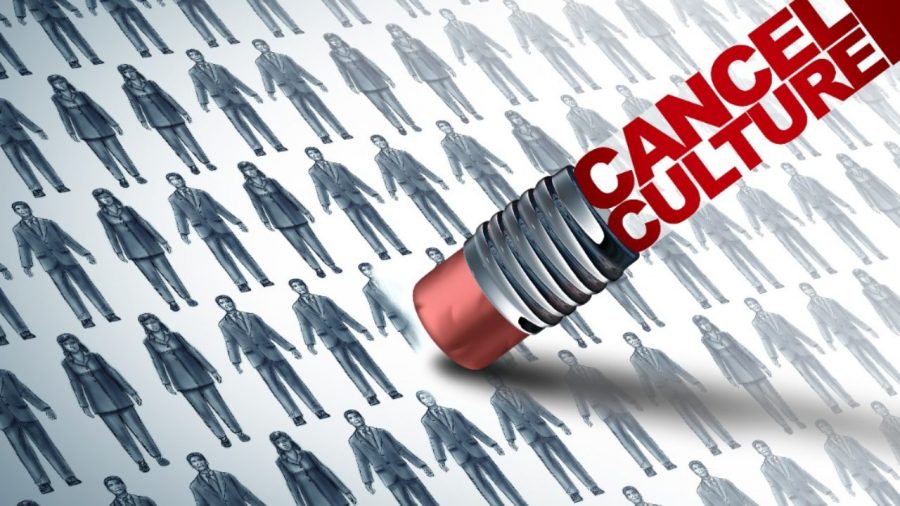A Look At Cancel Culture
If you own any social media platforms, you are well aware of the concept of “cancel culture.” Whether it be a shady tweet or a racial slur, fans do not hold back on “dragging” the celebrity to absolute ruin. Stans, overzealous or obsessive fans of a particular celebrity, do not tolerate any of it. But who even started the whole trend? Let’s look through a couple of examples.
TikTok is a hotspot for calling people out. Many TikTokers such as Lil Huddy, Zoe Laverne, Nessa Barrett, and many others are all notorious for one disgusting thing: racial slurs. Many were “exposed” in private videos, lip-syncing, and flat out just saying them.
When viewers found out, they did not hold back. By commenting clown emojis under their posts or calling them racist, people expressed their judgment. The same reaction seems to occur if someone supports Donald J. Trump, 45th President of the United States. The reason behind this constant backlash is because most social media platforms are predominantly run by liberals.
The most popular victim of cancel culture is none other than James Charles, a famous makeup artist on YouTube. He was “canceled” when Tati Westbrook, a fellow influencer and his good friend, described a story where he sexually “harassed” a male waiter and “stabb[ed] her in the back” by supporting her business’ rival brand.
The hate Charles received was brutal, losing over a million followers and receiving thousands of direct messages threatening his life. Eventually, he released a video called “No More Lies” on YouTube disproving all the rumors and gradually gained back his subscribers. Most people trusted Tati’s claims because she was never in any internet scandals and her reputation was overall good.
It was unknown as to why she suddenly decided to cancel James until June 30th, 2020, a video explaining her behavior. She reported, “I made [the video] as a result of all the poisonous lies that were fed to me by Shane Dawson and Jeffree Star—believing those lies and letting myself be gaslit into making that video is one of the biggest regrets of my life. The information they were giving me was terrifying. I was told there were a lot of victims that were going to come forward.”
She explained in all 40 minutes that she was manipulated and used by Dawson and Star, which then led to Dawson’s recent cancellation.
Cancel culture thrives off of quick controversies and slips up, which is why it can become so toxic. People are often so quick to jump on a bandwagon to feel included, but share little interest in the effects that these controversies have in the long run.
It is important to look out for abusers in our spaces, and in no way shape, or form should their behavior be tolerated or ignored if it is truly unacceptable. We need to communicate with them, discuss their actions, and ask them to apologize, and maybe even leave. And these can be incredibly awkward conversations to have. But with the right support and right group, these issues can be addressed in a way that does not need to be violent or maleficent.

Ponthea is a senior returning for her fourth year at the Banner. You can find Ponthea hanging out with friends, In the library, walking around school...


